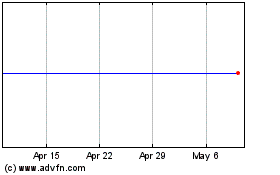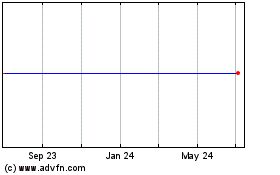UPDATE: United Technologies Prices $9.8 Billion Bond Deal To Fund Acquisition
May 24 2012 - 7:30PM
Dow Jones News
United Technologies Corp. (UTX) took advantage of low interest
rates and sold a $9.8 billion bond deal Thursday, easily the
largest U.S. corporate-bond offering in more than three years.
Proceeds from the colossal six-part deal will help the
aircraft-to-air conditioner conglomerate finance its $16.5 billion
takeover of aerospace parts maker Goodrich Corp. (GR). The Goodrich
acquisition is expected to close by late July, even as European
regulators investigate the deal over antitrust concerns.
"It's nice to see somebody coming to market and giving us a
little bit of hope that the economy is going to expand," said Mary
Talbutt-Glassberg, fixed-income portfolio manager and trader at
Davidson Trust Company. "They wouldn't be doing this deal if they
thought everything would be stagnant for the next five or 10
years."
Talbutt-Glassberg said her firm, which has $1.3 billion of
assets under management, had placed a $1 million order for the
five-year tranche.
The massive deal--the largest in the U.S. since J.P. Morgan
Chase & Co. (JPM) sold a $10 billion bundle of bonds in
February 2009, according to data provider Dealogic--comes just days
after the corporate bond market endured its worst week of 2012.
Corporate bond yields jumped 0.10 percentage point to 3.39%,
according to the Barclays U.S. corporate investment-grade index.
And spreads, the risk premium demanded by investors over the
safe-haven Treasurys, have climbed 0.24 point this month to 2.10
points.
"The new-issue market was for all intents and purposes closed
last week given the volatility," said Tom Murphy at Columbia
Management. Indeed, just $9.6 billion of new corporate bonds
entered the market last week, a five-week low.
But corporate bonds improved each day this week, sending yields
lower and making it more enticing to get a mega-sized deal done. As
one banker said: When was the last time an issuer had the chance to
sell $10 billion with the 10-year Treasury rate below 1.80%?
Despite overall low yields, investors were enthused about the
deal given how much extra yield was baked in. Thanks to the recent
market sell-off, the spread on United Technologies' 30-year bonds
jumped 0.40 percentage point this month, according to MarketAxess,
and Thursday's deal offered an additional 0.20 point in
"concession"--the extra yield offered on new bonds--making it more
attractive.
The spread on the 30-year bonds, which accounted for $3.5
billion of the deal, was 1.73 percentage points over comparable
Treasurys.
The bond deal consisted of $8.3 billion in fixed-rate bonds
maturing in three-, five-, 10- and 30-years. They were priced at
yields of 1.219%, 1.818%, 3.109%, and 4.576%, respectively.
It also included $1.5 billion of 18-month and three-year
floating-rate notes, priced at 0.27 and 0.50 percentage point over
the London interbank offered rate, or Libor.
Orders totaled between $35 billion and $38 billion, the largest
order book ever in records maintained by Bank of America Merrill
Lynch, which led the transaction.
BofA Merrill was a bookrunner on the two largest corporate bonds
deal of the past decade: the $16.5 billion offering from Roche
Holding AG (RHHBY, ROG.VX, RO.EB) in February 2009, and the Pfizer
Inc. (PFE) $13.5 billion deal in March 2009. Both of those had
order books at less than $30 billion, said Andrew Karp, BofA
Merrill's head of U.S. investment-grade syndicate.
"There were clearly investors waiting for this transaction who
had positioned themselves for it," he added.
The more orders there are, the less investors can expect to
receive when the deal is allocated.
"We've been told that allocations will be brutal," said John
Majoros, managing director at Wasmer, Schroeder & Co., a
Naples, Fla.-based firm with $4.3 billion under management.
Majoros said Wasmer ordered more bonds from this deal than any
other this year, though he declined to say how much that was. He
expected to receive less than one-third the volume that he put in
for.
The large number of orders also means the bonds should continue
to trade well in the secondary market as disappointed investors try
to fill up their portfolios.
"These spreads are going to come in so fast," Talbutt-Glassberg
said.
She said the yields were comparable to bonds in the financial
sector, where investors demand more risk-compensation.
Five-year bonds from International Business Machines Corp.
(IBM), for instance, last traded at a yield of just 1.336%, or 0.48
percentage point lower than what United Technologies offered.
-By Patrick McGee, Dow Jones Newswires; 212-416-2382;
patrick.mcgee@dowjones.com
United Technologies (NYSE:UTX)
Historical Stock Chart
From Mar 2024 to Apr 2024

United Technologies (NYSE:UTX)
Historical Stock Chart
From Apr 2023 to Apr 2024
